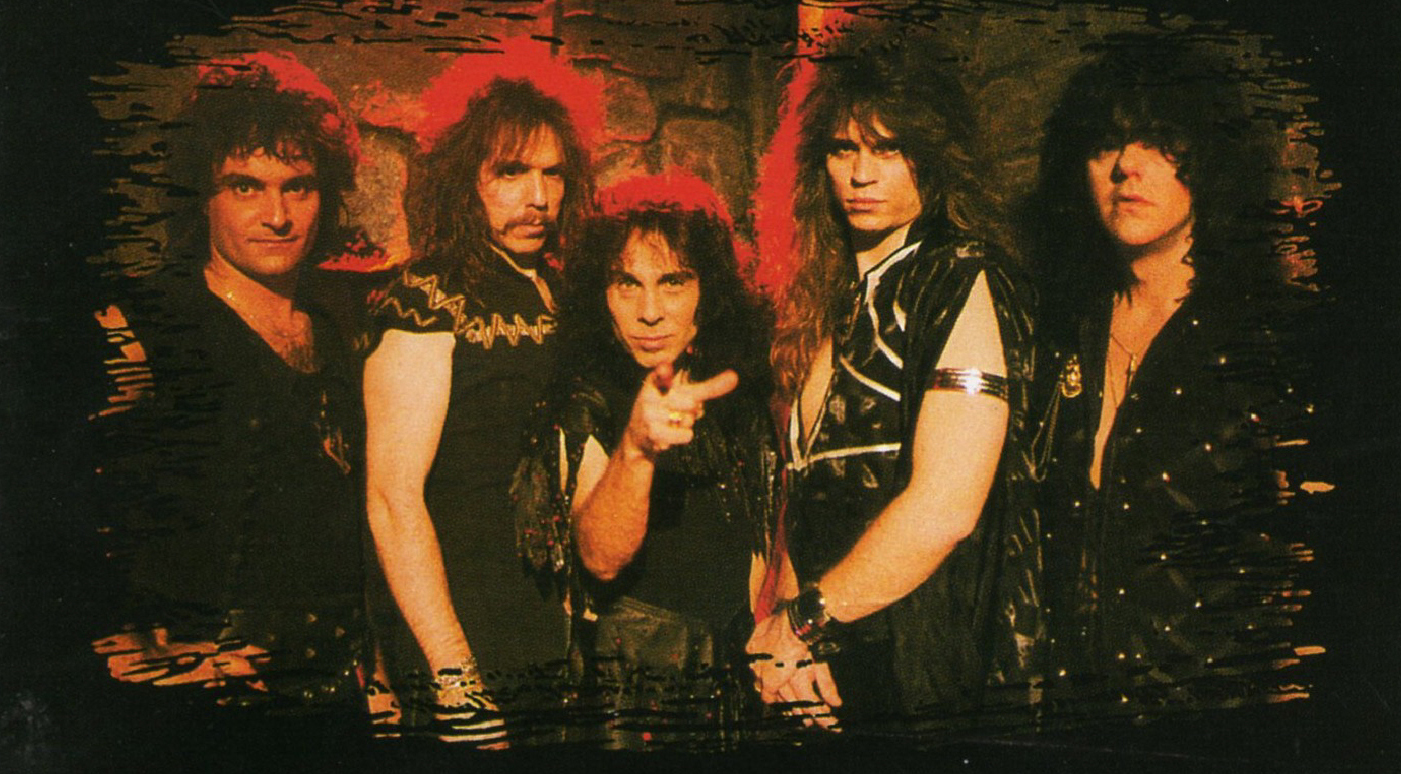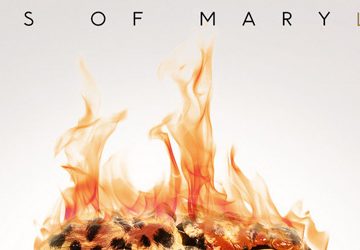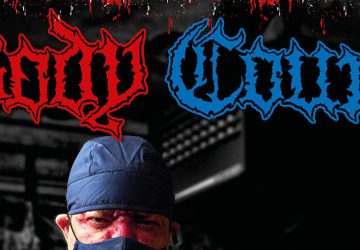
Most modern bands can only aspire to last thirty years, much less have an album remembered after three decades have passed. That feat has been achieved with American band Dio’s Sacred Heart, which was released Thursday August 15, 1985. It was produced by frontman Ronnie James Dio, and released on Warner Bros in America and Vertigo internationally. Dio’s third album, Sacred Heart, may not be Dio’s most successful album, but it is one of the best known, because it was so polarizing in that hardcore fans loathed the more polished, commercial-friendliness with more throwaway songs than memorable hits whereas the newer audience preferred the cleaner material.
1983’s Holy Diver, Dio’s debut album, holds the title of Dio’s most commercially successful album, and Sacred Heart might have been able to ride its coattails since it was only twice removed from that juggernaut, but it managed to carve a swift niche in the hearts of fans with a gold certification coming a mere two months after its initial release. By contrast, Holy Diver took six years to go platinum. The popularity of the album was bolstered by heavy drums, Dio’s raspy, screechy vocals accompanied by the intense hooks of original guitarist Vivian Campbell, who left the band shortly after Sacred Heart’s release.
Sacred Heart has earned the right to be among other popular 1985 albums, such as Iron Maiden’s Live after Death, Rush’s Power Windows, and The Cult’s Love, not necessarily the most successful, but noteworthy in their own right. Beginning with the album’s cover, one of the few that did not feature Dio’s mascot Murray, fans were treated to a dragon named Denzil for the album and subsequent tour, along with the inscription “Finis per somnium reperio tibi sacra cor veneficus aurum,” which translates from the Latin as “Come the end by sleep; I will prepare for you the Sacred Heart which is the magic that opens upon the altar,” which is expounded further in the album’s title track.
From the start, the album has an organic feel with a live version of “King of Rock and Roll,” Dio’s ode to himself, as he was allegedly one who thought pretty highly of himself. The title track, “Sacred Heart,” switches gears thematically while retaining the heavy drumwork and air-tight guitars. This epic track (6:29) takes a mythological turn by using the sacred heart for a metaphor for the self to fight demons and make dreams happen. The shorter (3:50) “Another Lie,” packs a punch while it continues the mythological story ”Sacred Heart” began, referring to a wizard who represents the haters of society. Repetitive lyrically, the song is catchy with a bit lighter stylized drum-work and hook. On the other hand, “Rock ‘n’ Roll Children” was helped by regular video play. The video depicts Dio as a wizard who meets two kids he entices to his world, which is a metaphor for society, where he gets them separated. Eventually, the kids find each other and escape, vanquishing the wizard. The anthemic “Hunger for Heaven” breaks from the mythological story-line the previous two tracks set in motion, instead, going for the metaphorical message of getting through life’s pitfalls to make dreams happen, with a lighter beat that borders on Pop.
The album gets back to the harder metal with the musically brooding yet anthemic piece “Like the Beat of a Heart” as the tight, heavy drums kick in with the hook. This track, like “Hunger for Heaven,” expresses the metaphorical message of the burning in everyone to make their dreams come true. To throw the listener off guard is the cynical “Just Another Day,” which stays musically with the driving drum-line and accompanying hook that Dio went with on this album. As Dio and Campbell were actively at odds with Dio accusing Campbell of phoning in his work, this track could be construed as a direct jab at him. Dio wanted listeners to remember these tunes, mixing musical vibes with obvious opposing lyrical feelings, i.e. brooding music with love lyrics. The cynicism continues with “Fallen Angels,” also set to ha happy-go-lucky beat that carries the weight of the lyrics of society’s state. Musically, the track is basic with the requisite hook, but ends with a surprising gunshot. Finishing Sacred Heart is the catchy if gimmicky “Shoot Shoot” with its message of not being scared of anything…even death.
Unfortunately, Sacred Heart was the last album Dio had in the charts until the Grunge scene died away, and 2000’s Magica was released making it all the more memorable for want. Nonetheless, whether from bad publicity and lukewarm to negative criticism, to differences of opinion among fans, Ronnie James Dio’s supposed ego trip that predates Axl Rose, or the spontaneity of the vibes of each track, Sacred Heart has managed to remain an album to dissect and discuss, or simply to listen and carry on Dio’s legacy for the last thirty years. Here is to another thirty.






No comment